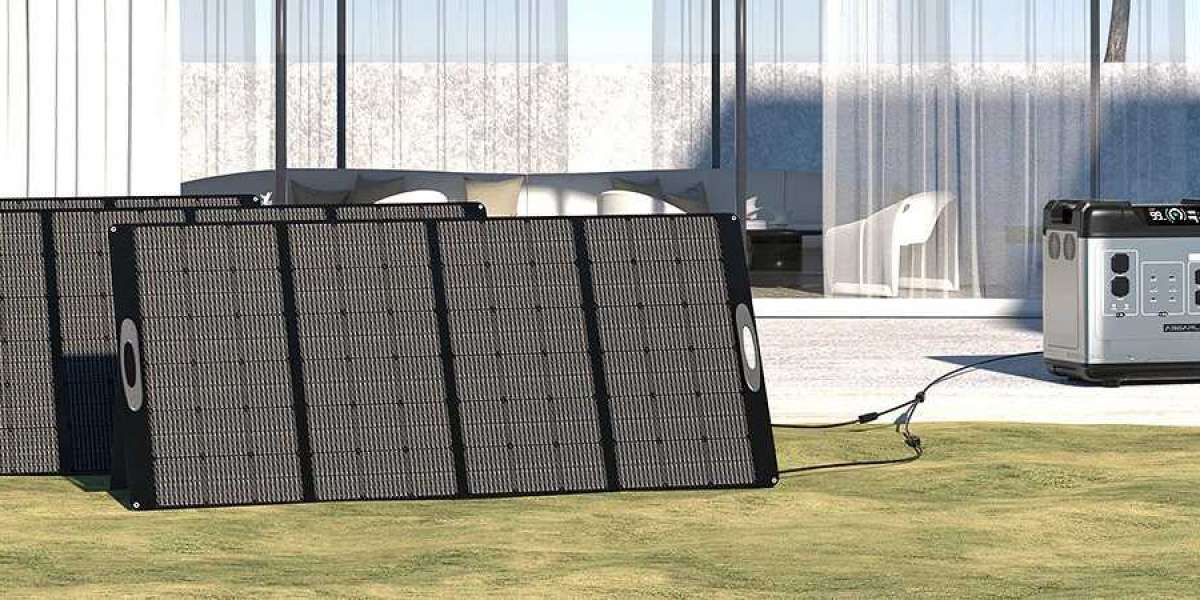Outdoor adventures are all about embracing nature, disconnecting from the hustle and bustle of daily life, and enjoying the serenity of the great outdoors. However, whether you're camping, hiking, or embarking on a long road trip, having a reliable power source can significantly enhance your experience. A solar generator is an ideal solution, providing you with clean, renewable energy to power your essential devices. But with so many options available, how do you choose the right solar generator for your outdoor adventures? This article will guide you through the key factors to consider when selecting the perfect solar generator for your needs.
1. Assess Your Power Needs
The first step in choosing a solar generator is to assess your power needs. Consider the types of devices you'll be using and how much power they require. Here's a breakdown of common outdoor appliances and their average power consumption:
- Smartphones and Tablets: 5-20 watts
- Laptops: 40-80 watts
- LED Lights: 5-10 watts
- Portable Fans: 10-20 watts
- Mini Fridges: 60-100 watts
- Cameras and Drones: 5-50 watts
Once you have an idea of your total power consumption, you'll need to choose a solar generator with enough capacity to meet your needs. Remember that higher-capacity generators can power more devices for longer periods, but they may also be heavier and more expensive.
2. Consider Portability
Portability is crucial for outdoor adventures, where you'll often need to carry your solar generator with you. The weight and size of the generator should be manageable, especially if you'll be hiking or moving between campsites. Here are some general guidelines:
Lightweight Models (5-15 lbs): Ideal for day trips, short hikes, and minimal power needs. These models are easy to carry and typically have enough capacity to charge small devices like smartphones and cameras.
Medium Weight Models (15-30 lbs): Suitable for weekend camping trips or road trips where you'll have access to a vehicle. These generators can power a wider range of devices, including laptops and small appliances.
Heavy-Duty Models (30+ lbs): Best for extended stays or base camps where you need to power multiple devices, including larger appliances like mini-fridges. These generators offer more capacity but may require a vehicle for transport.
When considering portability, also look for features like carrying handles, wheels, and compact designs that make the generator easier to transport.
3. Evaluate Battery Capacity
Battery capacity, measured in watt-hours (Wh), determines how long your solar generator can power your devices before needing a recharge. The higher the capacity, the longer the runtime. Here's how to calculate your required battery capacity:
- Estimate Total Wattage: Add up the wattage of all the devices you'll be using simultaneously.
- Determine Usage Time: Estimate how many hours you'll use each device per day.
- Calculate Capacity: Multiply the total wattage by the usage time to get your required battery capacity.
For example, if you plan to use a 60W mini-fridge for 4 hours and a 10W LED light for 5 hours, you'll need at least 290Wh (60W x 4 hours + 10W x 5 hours = 290Wh).
4. Check Solar Panel Compatibility
Solar generators rely on solar panels to recharge their batteries, so it's essential to ensure that your generator is compatible with the solar panels you plan to use. Consider the following:
Wattage: The wattage of your solar panels should match or exceed the input capacity of the generator to ensure efficient charging. For faster recharging, opt for higher-wattage panels.
Connector Type: Ensure that the solar panels and generator have compatible connectors. Some generators come with proprietary connectors, while others use standard MC4 or Anderson connectors.
Portability of Panels: Just like the generator, your solar panels should be portable and easy to set up. Foldable or flexible panels are ideal for outdoor adventures, as they are lightweight and can be packed away when not in use.
5. Consider Charging Options
While solar panels are the primary charging method for solar generators, it's important to have alternative options, especially when the weather is unpredictable. Look for generators that offer multiple charging methods, such as:
AC Charging: Allows you to recharge the generator from a wall outlet before your trip. This is the fastest charging method and ensures you start with a full battery.
Car Charging: Some generators can be recharged from your vehicle's 12V outlet, providing a backup option when solar charging isn't possible.
Dual Charging: Some advanced models support dual charging, allowing you to charge via solar panels and an AC outlet simultaneously for faster recharging.
6. Check the Number and Type of Outlets
The number and type of outlets on a solar generator determine how many devices you can connect simultaneously. Common outlets include:
- AC Outlets: For powering standard household appliances.
- USB Ports: For charging smartphones, tablets, and other USB-powered devices.
- 12V DC Outlets: For car accessories and certain camping equipment.
- USB-C Ports: For fast charging of modern devices like laptops and smartphones.
Choose a generator with enough outlets to accommodate all your devices, and consider the types of connectors you'll need.
7. Consider Durability and Build Quality
Outdoor adventures can be rough on equipment, so it's important to choose a solar generator that's built to withstand the elements. Look for the following durability features:
Weather Resistance: Ensure the generator has a weather-resistant design, with protection against dust, water, and impact. Some models offer an IP rating (e.g., IP65) that indicates their level of protection.
Rugged Construction: Opt for generators with robust, shock-resistant housings that can handle the bumps and drops that may occur during outdoor activities.
Warranty and Support: Check the manufacturer's warranty and customer support options. A good warranty is a sign of a durable product, and responsive customer support can help you address any issues that arise.
8. Consider Your Budget
Finally, consider your budget when choosing a solar generator. Prices can vary widely based on capacity, features, and brand reputation. While it may be tempting to go for the cheapest option, investing in a high-quality generator will provide better performance, reliability, and longevity. Consider your needs and choose a generator that offers the best value within your budget.
Conclusion
Choosing the right solar generator for your outdoor adventures requires careful consideration of your power needs, portability, battery capacity, solar panel compatibility, charging options, outlet types, durability, and budget. By taking the time to evaluate these factors, you can select a generator that will provide reliable, clean energy to power your devices, ensuring a safe and enjoyable experience in the great outdoors. Whether you're planning a weekend camping trip or a long-term off-grid adventure, the right solar generator will keep you connected and comfortable, no matter where your journey takes you.







